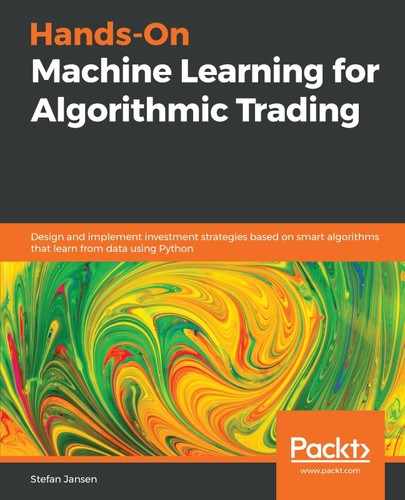The familiar three revolutions in computing power, data, and ML methods have made the adoption of systematic, data-driven strategies not only more compelling and cost-effective but a key source of competitive advantage.
As a result, algorithmic approaches are not only finding wider application in the hedge-fund industry that pioneered these strategies but across a broader range of asset managers and even passively-managed vehicles such as ETFs. In particular, predictive analytics using machine learning and algorithmic automation play an increasingly prominent role in all steps of the investment process across asset classes, from idea-generation and research to strategy formulation and portfolio construction, trade execution, and risk management.
Estimates of industry size vary because there is no objective definition of a quantitative or algorithmic fund, and many traditional hedge funds or even mutual funds and ETFs are introducing computer-driven strategies or integrating them into a discretionary environment in a human-plus-machine approach.
Morgan Stanley estimated in 2017 that algorithmic strategies have grown at 15% per year over the past six years and control about $1.5 trillion between hedge funds, mutual funds, and smart beta ETFs. Other reports suggest the quantitative hedge fund industry was about to exceed $1 trillion AUM, nearly doubling its size since 2010 amid outflows from traditional hedge funds. In contrast, total hedge fund industry capital hit $3.21 trillion according to the latest global Hedge Fund Research report.
The market research firm Preqin estimates that almost 1,500 hedge funds make a majority of their trades with help from computer models. Quantitative hedge funds are now responsible for 27% of all US stock trades by investors, up from 14% in 2013. But many use data scientists—or quants—which, in turn, use machines to build large statistical models (WSJ).
In recent years, however, funds have moved toward true ML, where artificially-intelligent systems can analyze large amounts of data at speed and improve themselves through such analyses. Recent examples include Rebellion Research, Sentient, and Aidyia, which rely on evolutionary algorithms and deep learning to devise fully-automatic Artificial Intelligence (AI)-driven investment platforms.
From the core hedge fund industry, the adoption of algorithmic strategies has spread to mutual funds and even passively-managed exchange-traded funds in the form of smart beta funds, and to discretionary funds in the form of quantamental approaches.
